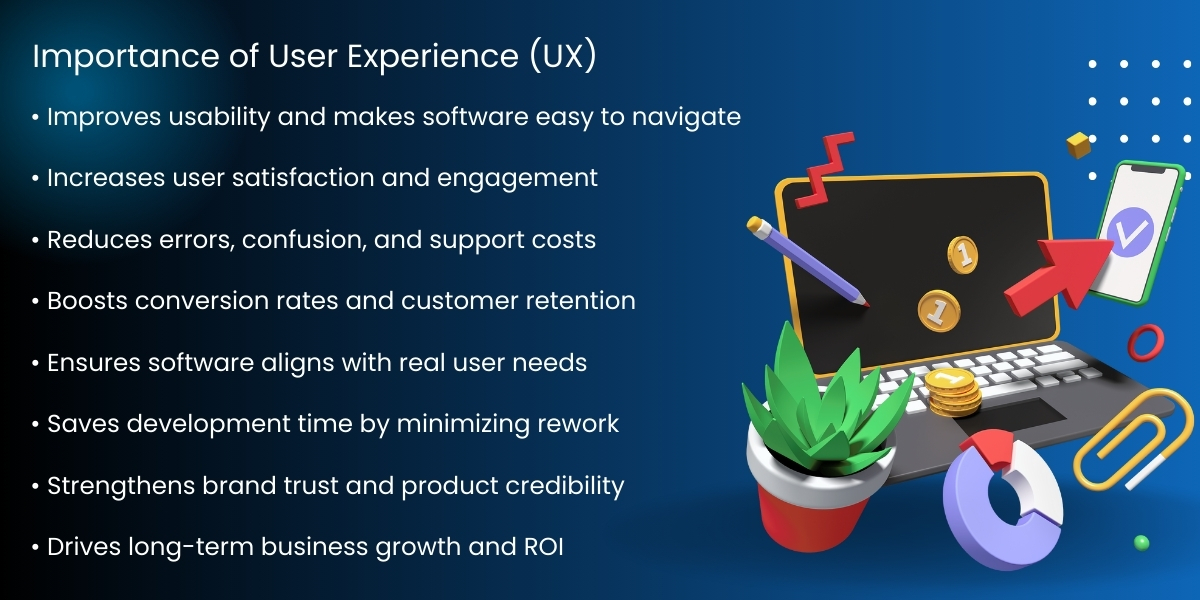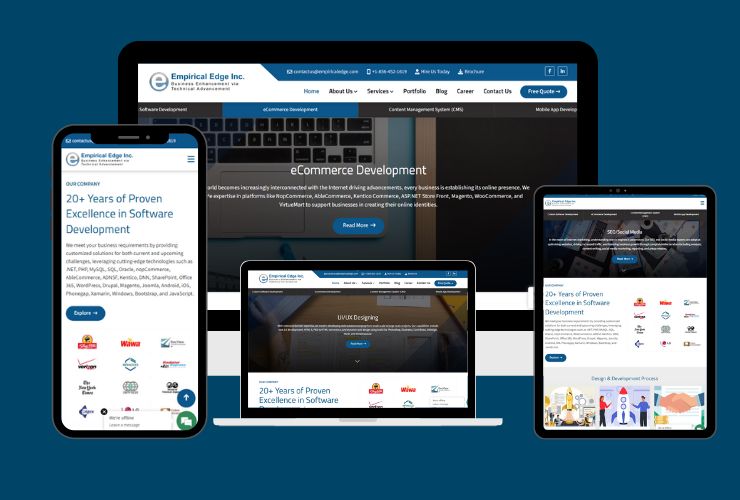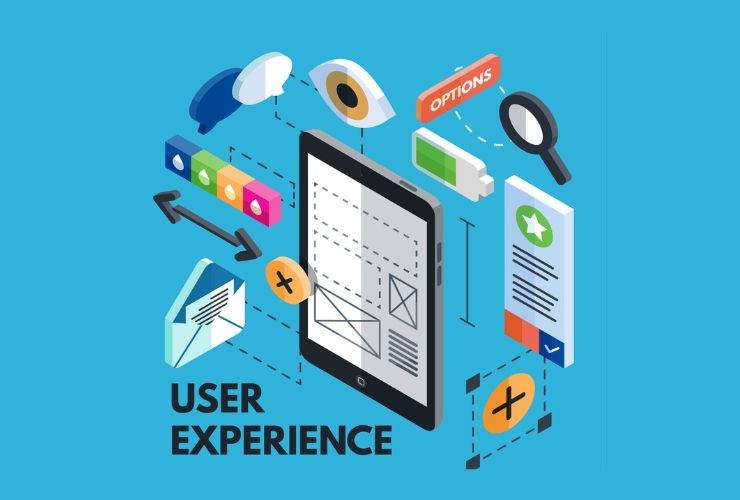In today’s digital landscape, creating software that meets users’ needs and expectations is essential for success. User Experience (UX) refers to how a user interacts with a product, encompassing everything from design and usability to functionality and satisfaction. In software development, prioritizing UX is not just a nice-to-have; it’s a critical factor that can determine the overall success of your product. Let’s dive into why UX matters in software development and how it can impact your project.
1. Enhances User Satisfaction
At the heart of UX is the user. A well-designed software application considers users’ needs, preferences, and pain points. By investing in UX research and design, you can create a product that resonates with your audience, leading to higher satisfaction levels. When users find your software intuitive and enjoyable to use, they’re more likely to engage with it regularly and recommend it to others.
2. Increases Efficiency and Productivity
Good UX design streamlines workflows and minimizes the time users spend trying to understand how to use a product. By making navigation intuitive and reducing unnecessary steps, users can accomplish tasks more efficiently. This is particularly important in enterprise software, where employees need to complete tasks quickly to maintain productivity. Improved efficiency not only enhances user satisfaction but also boosts overall business performance.
3. Reduces Development Costs
Investing in UX upfront can save significant costs down the line. When users find software difficult to navigate or frustrating to use, they may require additional training or support, leading to higher operational costs. Moreover, if users abandon your software due to poor UX, you may need to invest in redesigning it entirely. By focusing on UX from the beginning, you can identify and address potential issues before they become costly problems.
4. Builds Brand Loyalty
A positive user experience fosters brand loyalty. When users feel comfortable and valued while using your software, they’re more likely to stick with your brand and recommend it to others. This loyalty can lead to repeat business and a strong reputation in the market. In contrast, a poor UX can damage your brand’s image and drive users away, even if your product has valuable features.
5. Enhances Accessibility
Accessibility is a crucial aspect of UX design. It ensures that all users, including those with disabilities, can use your software effectively. By incorporating accessibility features, such as screen reader compatibility, keyboard navigation, and adjustable font sizes, you can create a more inclusive product. Not only does this improve the user experience for everyone, but it also expands your potential user base.
Conclusion
In conclusion, prioritizing User Experience (UX) in software development is vital for creating products that meet users’ needs and foster satisfaction. By enhancing user satisfaction, increasing efficiency, reducing costs, building brand loyalty, and improving accessibility, you can develop software that stands out in a competitive market. Remember, a positive user experience isn’t just about aesthetics; it’s about creating meaningful interactions that keep users coming back for more.
Elevate your software with user-centered design.
Empirical Edge delivers expert UX and UI solutions that improve usability, boost engagement, and drive measurable business results.
Frequently Asked Questions
User Experience (UX) refers to how users interact with software — including ease of use, accessibility, and overall satisfaction. Great UX increases engagement, reduces errors, and drives higher adoption. Empirical Edge designs intuitive interfaces that prioritize user needs and business goals.
Empirical Edge conducts user research, prototype testing, UI design, iteration, and usability evaluation to ensure software is easy to use, accessible, and aligned with user workflows — resulting in higher retention and satisfaction.
Good UX leads to happier users, fewer support issues, higher conversion rates, and stronger customer loyalty. Empirical Edge focuses on measurable UX improvements that directly impact business KPIs.
UX is the overall experience a user has, while UI (User Interface) is the visual and interactive elements. Empirical Edge ensures both UX and UI work together to create intuitive and beautiful software.
Yes — Empirical Edge conducts UX audits, redesigns user flows, updates UI elements, and implements enhancements that make existing software more intuitive and user-friendly.















